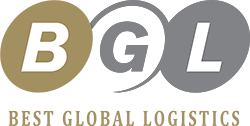When it comes to business success, there’s one element that remains central across all industries: a robust, high-performing supply chain. Whether you’re leading a global corporation or managing a small startup, the efficiency and resilience of your supply chain directly affect your profitability, growth, and overall sustainability. In this post, we’ll explore why supply chain excellence is essential for any business aiming to succeed in today’s competitive markets, and we’ll outline key areas to focus on for improvement.
The Link Between Supply Chain and Success
Consider these compelling statistics. According to a 2014 Deloitte survey, 79% of companies with high-performing supply chains achieve above-average revenue growth, compared to only 8% of companies with less capable supply chains. This figure alone underlines how closely intertwined a business’s performance is with its supply chain effectiveness.
But for many companies, the supply chain often lacks strategic attention. In fact, a large proportion of businesses operate with supply chains that have simply “evolved” rather than been deliberately designed. This lack of focus can lead to inefficiencies, higher costs, and reduced customer satisfaction—factors that are not only detrimental to growth but can even contribute to business failure.
Here are the key supply chain areas every business should optimize to support long-term success:
1. Supply Chain Strategy
To build a foundation for success, your supply chain strategy must be aligned with your overall business goals. Surprisingly, more than half of business leaders still view the supply chain as a standalone function rather than an integrated part of their strategy. A strong supply chain strategy is designed to support commercial goals and improve operational resilience.
Mini Case Study: Walmart
Walmart’s supply chain strategy is a model of excellence. Through initiatives like vendor-managed inventory, cross-docking, and partnerships with suppliers, Walmart has consistently driven down costs and ensured operational efficiency. This alignment between Walmart’s supply chain and its overarching business strategy has been crucial to its leadership in low-cost retail.
2. Supply Chain Network Design
A well-designed supply chain network is crucial for minimizing costs and meeting customer demand. However, only 22% of companies actively focus on optimizing their network design. Without a strategic approach, supply chain networks often develop in piecemeal ways, which can create unnecessary costs and limit the ability to adapt quickly to market changes.
Mini Case Study: Whirlpool
After acquiring Maytag, Whirlpool prioritized continuous optimization of its supply chain design. By implementing a system for network analysis and adopting agile warehousing solutions, Whirlpool was able to scale its distribution network effectively, reducing costs and improving customer reach.
3. Customer Service and Satisfaction
In a world where 89% of companies now compete based on customer experience, a high-performing supply chain is essential for meeting customer expectations. Supply chain issues like delayed deliveries, inventory shortages, or poor order fulfillment can directly impact customer satisfaction and loyalty. Companies that prioritize customer experience through supply chain excellence can drive profitable growth and competitive advantage.
Case in Point: Zappos
Zappos is renowned for its focus on customer service. By establishing strong logistics partnerships, strategically locating inventory, and viewing delivery costs as a marketing expense, Zappos has turned its supply chain into a cornerstone of its customer-centric business model.
4. Cost Management
Supply chain costs often represent a substantial portion of a company’s expenses, and reducing them without sacrificing quality or service can yield significant competitive advantages. Methodologies like “cost-to-serve” analysis help businesses understand which customers and products are most profitable, enabling them to focus on value-adding activities.
According to PwC, companies with optimized supply chains experience 15% lower costs and significantly faster cash-to-cash cycles, compared to those with unoptimized supply chains. Effective cost management in the supply chain involves addressing areas like transportation, inventory, procurement, and waste reduction.
5. Supplier Performance
Your supply chain is only as strong as its weakest link, and suppliers play a critical role. Close collaboration with suppliers can help minimize disruptions and ensure a smooth flow of goods, reducing bottlenecks and improving consistency. Top-performing companies that prioritize supplier management report significant cost savings and enhanced reliability.
Supplier performance management today also extends to ethical considerations. In recent years, major brands have faced reputational damage due to unethical practices in their supply chains. Companies are increasingly expected to implement responsible procurement practices, ensuring that their suppliers adhere to ethical standards.
6. Ethical Procurement and Corporate Responsibility
Public awareness around sustainability and ethics is growing, and consumers are now holding businesses accountable for the actions of their suppliers. Poor supplier practices—even if they occur further down the supply chain—can tarnish a brand’s reputation and harm financial performance. Conducting due diligence and maintaining ethical procurement standards are now essential for any business hoping to thrive in today’s market.
7. Inventory Management
Effective inventory management impacts working capital, cash flow, and customer satisfaction. Many businesses can improve their inventory performance by addressing forecast accuracy, lead times, and storage costs. Proper inventory management not only prevents costly issues like overstocking or stockouts but also supports smoother operations and better customer experiences.
Driving Your Business Forward
In summary, optimizing your supply chain is essential for any business aiming for sustained growth and competitive strength. Ask yourself the following:
- Is your supply chain strategy aligned with your business goals?
- Do you regularly review and optimize your supply chain network?
- Are you actively working to improve customer satisfaction through supply chain excellence?
- Do you have a robust supplier management program?
- Are your inventory management practices as efficient as they could be?
If you answered “no” to any of these, you have a significant opportunity to improve. Developing a best-in-class supply chain requires dedication, expertise, and a willingness to adapt. But with the right focus and resources, your supply chain can become a powerful driver of success, helping your business thrive in both local and global markets.



